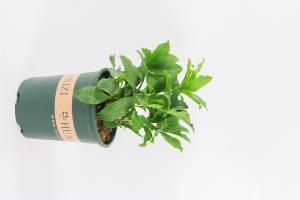Will swimming pool water kill plants?
Swimming pools make for a wonderful addition to any home. They provide a refreshing escape from the heat during the summer, a great opportunity for exercise and relaxation, as well as an excellent entertainment option for families and friends. However, one question that arises when considering a swimming pool installation is whether the water used in the pool is safe for the plants on your property. This article seeks to provide an answer to the question, do you need to worry about your pool water killing your plants?
Chlorine in swimming pool water
The main concern with the water used in swimming pools is the amount of chlorine that is present. Chlorine is a chemical that is added to swimming pool water to kill bacteria, viruses, and other harmful microorganisms. While this is necessary for keeping the water safe for swimming, it can cause problems for plants. Chlorine is toxic to plants, and exposure to high concentrations of it can cause leaves to turn yellow, dry out, or even fall off.
How much chlorine is too much?
While chlorine can certainly be harmful to plants at high concentrations, the amount of chlorine in swimming pool water that makes contact with plants is generally too low to cause any significant harm. When pool water is pumped out to water plants, the chlorine levels are typically well-diluted and pose no threat to the plants. However, if you're concerned about the chlorine content in your pool water, you can have it tested and take measures to reduce it if necessary, such as adding sodium thiosulfate to neutralize the chlorine.
Other factors that can impact plants
While the chlorine content of swimming pool water is the main concern for plants, there are other factors to consider as well. These include the salt content of the water, the pH level, and the alkalinity. Saltwater pools, in particular, can cause damage to certain types of plants due to the high salt content. The pH level and alkalinity of the water can also impact plants. If the levels are too high or too low, it can cause the plants to suffer or even die.
What can you do to protect your plants?
If you're worried about the impact of your pool water on your plants, there are a few things you can do to keep them safe. Firstly, avoid splashing chlorine-rich water directly onto plants. Secondly, ensure that the plants are not located near the pool's skimmer or return lines, as this can increase the likelihood of water reaching the plants. Additionally, ensure that the pool water is properly balanced and tested regularly to keep the pH, alkalinity, and chlorine levels at appropriate levels for the plants. Finally, avoid using pool water to water plants that are particularly sensitive to chlorine, such as ornamental plants.
In conclusion
In conclusion, while the chlorine content of swimming pool water can be harmful to some plants, the levels that typically come into contact with them are generally too low to cause any significant harm. While it's important to take measures to reduce the chlorine content of pool water if necessary, such as adding sodium thiosulfate, it's generally not necessary to worry about your pool water killing your plants. However, it's important to be aware of other factors that can impact plants, such as salt content, pH levels, and alkalinity, and take steps to keep your pool water balanced for the sake of your plants as well as your swimmers!

 how many times do yo...
how many times do yo... how many planted tre...
how many planted tre... how many pine trees ...
how many pine trees ... how many pecan trees...
how many pecan trees... how many plants comp...
how many plants comp... how many plants can ...
how many plants can ... how many plants and ...
how many plants and ... how many pepper plan...
how many pepper plan...































